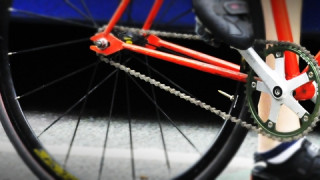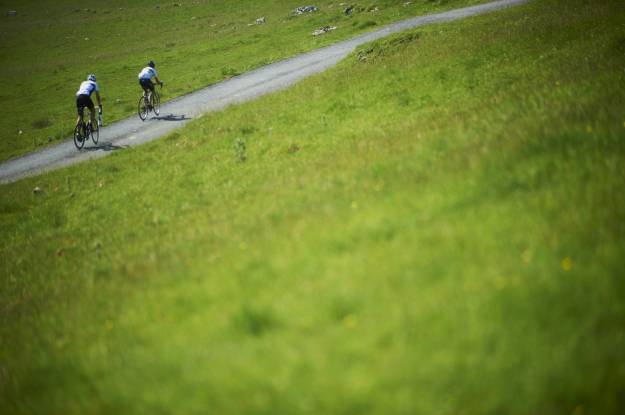Arriving at work late, stressed out with oily, greasy hands (or not getting there at all!) is high on the list of many a would-be bike commuters list of fears.
Above: A simple bike like this fixed is one way of minimising the potential for roadside mechanicals.
In cycling, as with motoring, there's always a chance that you'll have to change a tyre or fix a problem at the roadside every now and again. However, the key is to minimise the chance of unscheduled alfresco bike maintenance, which you can do by following these simple steps
1. Do your maintenance at home - might sound like a bit of a no-brainer, but so many riders sorely neglect their regular commuting steeds. Regular cleaning and visual checks can often ward off potential rush-hour dramas. So when you've got a minute in the evening, check your tyres for cuts, foreign bodies and inflation. Check for frayed brake and gear cables. Check the condition of your brake blocks and make sure that all the nuts and bolts on your bike are nice and tight.
2. Get proper tyres for the job - many bikes are come specced with tyres designed for racing, or at least designed to attract the pseudo racer. However, if you're more serious about getting to work on time than setting a PB, then it's wise to invest in proper rubber. Look for tyres with puncture protection, thick treads and strong sidewalls. A good second line of defence is to fit slime tubes, special inner tubes filled with a slimy substance that congeals around small punctures and fixes them instantly.
3. Ride a simple bike - a simple bike can often be more reliable by virtue of just having less to go wrong. Complex suspension, braking and gearing systems can often be overkill on commuting bikes. For this reason, many off the shelf commuting bikes have rigid frames and forks, internal gear systems and brakes which are hidden from road grime, potential damage and wear and tear. Indeed, many commuters opt for single speed bikes, which do away with gear systems altogether.
4. If the worst happens be prepared - Sometimes no matter what precautions you take, you'll still end up getting caught out. So if you do, make sure you've got the tools, spares and knowledge to deal with most roadside repairs. A bare minimum toolkit is a pump, tyre levers, a multitool (plus a spanner that fits your wheelnuts), a spare tube and a puncture repair kit. If you haven't a clue how to fix your bike or need to brush up on your skills, we can help. Check out the range of British Cycling Bike Maintenance Workshops.
5. Rescue Me! - If you've ignored point number 4 above then all is not lost. British Cycling Members get up to 15% off Cycle Rescue - an emergency roadside recovery service for cyclists.









